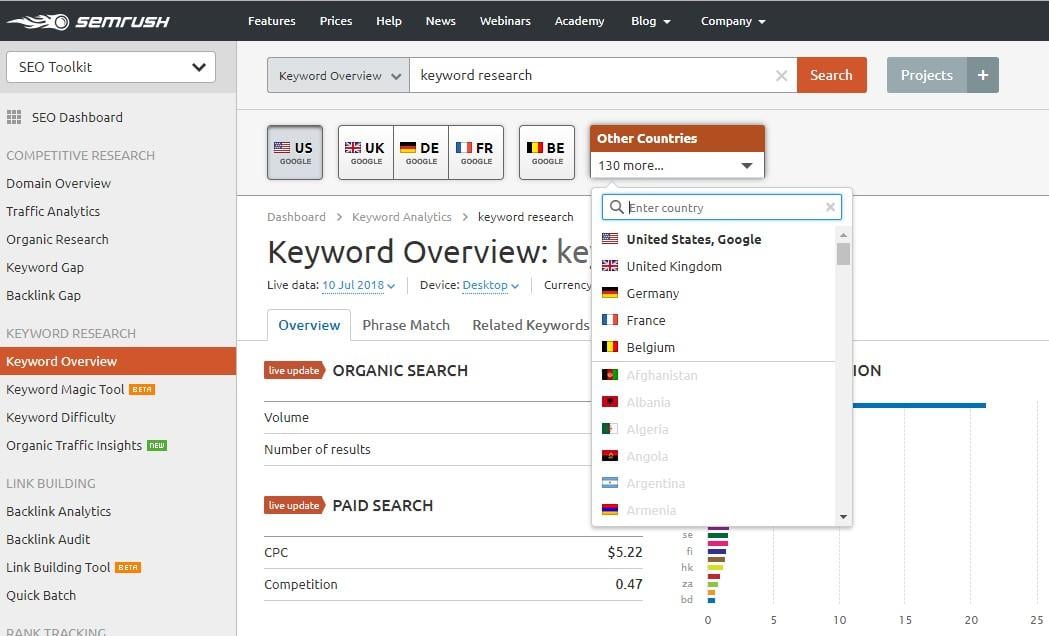Cracking the Code of International SEO: A Comprehensive Guide
Cracking the Code of International SEO: A Comprehensive Guide
Blog Article
Navigating the Digital Landscape: Leveraging International Search Engine Optimization for Cross-Border Success
In today's interconnected digital globe, businesses are progressively looking beyond borders to touch right into international markets. Leveraging search engine optimization (SEO) approaches customized for international target markets is crucial for achieving cross-border success. The complexity of browsing the digital landscape on an international scale demands a nuanced method, from understanding the principles of International search engine optimization to carrying out geotargeting and multilingual key words strategies. As firms aim to increase their reach and presence across different territories, optimizing web site structures and keeping track of cross-border efficiency ended up being indispensable elements of a successful international search engine optimization method.
Comprehending International Search Engine Optimization Principles
Browsing the details of worldwide Search engine optimization needs a strong grasp of essential principles to effectively broaden on the internet presence across borders. One important element of international Search engine optimization is recognizing the significance of localization.
Furthermore, having a clear understanding of geo-targeting is essential. This includes showing to internet search engine the certain countries or areas a site is targeting. Implementing hreflang tags is one method to communicate this details, making sure that the correct version of a page appears in the search results page for an individual in a certain area.
In addition, comprehending the effect of local online search engine and social media sites platforms is important for international SEO success. While Google is dominant in numerous regions, nations like China have their very own search engines like Baidu, needing tailored techniques for each platform to make the most of online presence (International SEO).

Targeting Multilingual Keyword Approaches
Developing multilingual key phrase approaches is essential for effectively reaching varied global target markets and making best use of on the internet exposure throughout different etymological regions. When targeting multilingual keyword phrase methods, it is essential to carry out thorough research study to comprehend the specific search terms and phrases used by the target market in each etymological area. This involves not only equating keyword phrases but likewise thinking about cultural nuances, local dialects, and search patterns unique per target audience.
To create a successful multilingual search phrase method, it is necessary to focus on relevance and search intent. Key words must line up with the content on the website and reverberate with the cultural context of the target market. Making use of devices such as Google Keyword Phrase Planner, SEMrush, or Ahrefs can assist recognize high-performing key words in different languages and examine their search volume and competitors level.
Furthermore, surveillance and assessing the performance of multilingual key phrases routinely is necessary for enhancing and refining the approach over time. By continually adapting to adjustments in search habits and fads, businesses can improve their on the internet visibility and draw in more worldwide traffic to their web sites.
Implementing Geotargeting and Hreflang Tags
When intending to improve global SEO methods, integrating geotargeting and hreflang tags is critical for maximizing website presence across different areas. Geotargeting includes customizing content to particular locations, ensuring that users in various locations get relevant info. By executing geotargeting, services can boost their regional search positions and bring in region-specific traffic.

Optimizing Internet Site Framework for International Presence
To even more improve international SEO techniques past geotargeting and hreflang tags, maximizing the web site structure is necessary for achieving international exposure and maximizing reach across different areas. A well-structured website not just improves customer experience yet also assists in internet search engine spiders in comprehending the material and context of the site. When going for international presence, it is vital to ensure that the website is arranged in a sensible way that satisfies users from numerous nations. Applying a clear pecking order with distinctive categories and subcategories can aid in improving the website's navigation and user-friendliness.
Furthermore, developing language-specific subdirectories or subdomains can aid internet search engine provide the appropriate version of the website to users based upon their language preferences, even more improving the overall individual experience. In addition, maximizing URL structures to consist of appropriate keywords and geotargeted terms can improve the website's exposure in different regions. By structuring the internet site properly for global audiences, services can increase their possibilities of drawing in international website traffic and expanding their reach throughout boundaries.

Monitoring and Evaluating Cross-Border Efficiency
Efficient surveillance and studying why not try here of cross-border performance is vital for reviewing the success of worldwide search engine optimization strategies and determining chances for improvement in international reach and presence. By carefully tracking key performance signs (KPIs) across various markets, organizations can acquire valuable insights right into the efficiency of their cross-border search engine optimization initiatives. Monitoring metrics such as natural web traffic, keyword positions, conversion prices, and bounce rates can provide a detailed view of how well a web site is executing in different areas.
Assessing cross-border efficiency data enables organizations to recognize patterns, patterns, and areas for optimization. By contrasting performance throughout various nations, areas, or languages, firms can identify effective approaches and center web content to much better cater to details target market. Furthermore, monitoring cross-border efficiency enables companies to remain nimble and responsive in the ever-evolving digital landscape. Normal analysis of SEO efficiency on a worldwide range ensures that companies can original site adjust their strategies quickly to profit from emerging opportunities and keep an one-upmanship in worldwide markets.
Conclusion
To conclude, international search engine optimization plays a crucial role in achieving cross-border success by enhancing websites for worldwide visibility, targeting multilingual key words methods, applying geotargeting and hreflang tags, and checking cross-border efficiency. By comprehending the fundamentals of global search engine optimization and enhancing website structures as necessary, businesses can effectively reach and involve with their target market across various regions and languages. This tactical approach is necessary for increasing market reach and driving online growth in today's digital landscape.
Report this page